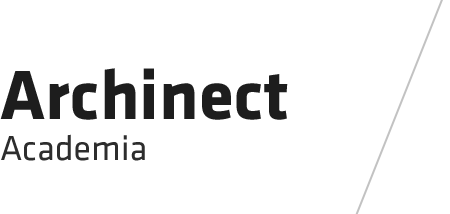
Miami, FL
Sponsored by the University of Miami School of Architecture, Center for Computational Science, Center for Health Sector Management and Policy, School of Business Administration and School of Communication, as well as the Miami Chapter of American Institute of Architects and the Miami Center for Architecture and Design.
Context
Design Thinking is an approach to innovation that is embedded in the language and methods of physical design and adjusted to apply to problems and projects in all realms of life. While its methods of working collaboratively to define a problem, research possibilities, brainstorm solutions, develop and test prototypes are fundamental to physical design, Design Thinking focuses specifically on human-centered design, which begins with the end result of enhancing life, putting people first. With significant potential to transform considerations of physical design, Design Thinking has been applied across the globe in areas as diverse as healthcare, business management, communication and education.
Colloquium
The Colloquium provides an introduction to the theory and methods of Design Thinking through introductory remarks and a panel conversation with leaders who are successfully moving their firms and institutions forward in this area. Following a moderated Q&A from the audience, everyone is invited to join a workshop table to try out the methods discussed. Table facilitators representing various disciplines—architecture, business, communication, medicine—will assist participants in applying the tools of Design Thinking to a table challenge. After table report-backs, the Colloquium will conclude with summary comments.
Speakers
David Ruthven is an award-winning architect whose focus on the intersection of healthcare environments and technology has yielded many unique design solutions. His signature work, Patient Room 2020, has been featured in several publications, including Metropolis, Fortune, Wired, FastCompany, and the Wall Street Journal. He is Senior Design Consultant with Philips Design, the international in-house design group at Royal Philips of the Netherlands, a diversified technology company, focused on improving people’s lives through meaningful innovation in the areas of Healthcare, Consumer Lifestyle and Lighting.
Erica Estrada-Liou is Director of Curriculum & Experiential Learning at the University of Maryland Academy for Innovation and Entrepreneurship. Trained as a mechanical engineer, after co-founding d.light design, a social enterprise that provides affordable light and power products to people living off of the electrical grid, she joined Stanford’s Hasso Plattner Institute of Design (the d.school) as a Design Fellow, and later became the co-founder and director of the Social Entrepreneurship Lab where she taught and conducted workshops on human-centered design applied to poverty and various social issues, in the United States and abroad.
Kenneth Schwartz , FAIA, is the Dean of Tulane University School of Architecture and founding director of the Phyllis M. Taylor Center for Social Innovation and Design Thinking which focuses on practical solutions to problems in a variety of areas. He established Tulane’s interdisciplinary undergraduate minor in Social Innovation and Social Entrepreneurship, and led the growth of the Tulane City Center. A founding principal of CP+D (Community Planning + Design) and Schwartz-Kinnard, Architects, he has won national design competitions exploring the impact of progressive urbanism and architecture in the rebuilding of cities.
Panel
Moderated by Rodolphe el-Khoury , Dean, School of Architecture
Dr. Steven Ullmann is the Director of the Center for Health Sector Management and Policy, Professor, Management and Economics, School of Business Administration, and Public Health Sciences, Miller School of Medicine, University of Miami. Specializing in the areas of health care management and health care economics, he has worked globally in the areas of privatization and implementation of health care management structures.
Bill Lennertz , AIA, is Executive Director of the National Charrette Institute, where he co-developed and teaches the NCI Charrette System,™ the first structured approach to design-based collaborative community planning. Since co-founding NCI in 2001, he has trained leaders from government, not-for-profit and private sector groups, and co-authored The Charrette Handbook published by the American Planning Association.
Schedule
12:30-12:45 Registration
12:45-1:00 Introductions
1:00-1:20 David Ruthven, Philips Design
1:20-1:40 Erica Estrada-Liou, University of Maryland
1:40-2:00 Kenneth Schwartz, Tulane University
2:00-2:20 Panel: Speakers plus Dr. Steven Ullmann, Director of the Center for Health Sector Management and Policy, and Bill Lennertz, National Charrette Institute. Moderated by Rodolphe el-Khoury, UM School of Architecture
2:20-2:30 Q&A with Panel
2:30-2:40 Break & Table Choices
2:40-3:30 Workshop
3:30-3:50 Report Backs
3:50-4:00 Concluding Remarks
Image courtesy of IDEO.org
No Comments
Block this user
Are you sure you want to block this user and hide all related comments throughout the site?
Archinect
This is your first comment on Archinect. Your comment will be visible once approved.